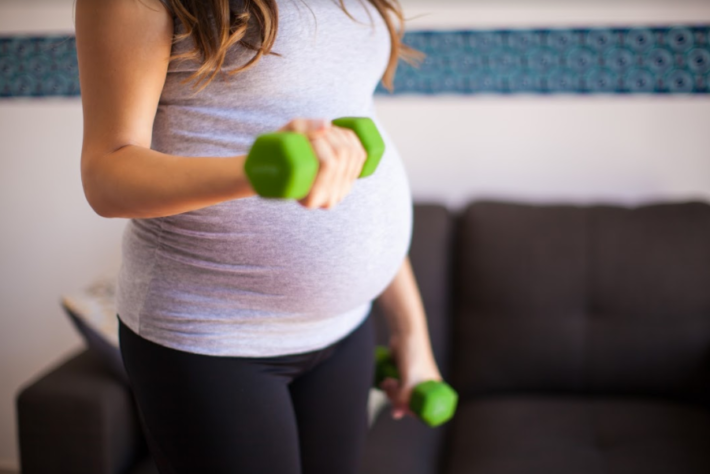
It goes without saying that pregnancy is extremely taxing on a woman’s body, and during pregnancy, an array of aches, pains, and discomfort can come to light.
While many people believe that physiotherapy is reserved for people who have undergone surgery or suffered a severe injury, that isn’t the case. In fact, women going through pregnancy are encouraged to visit a physiotherapist in order to soothe their pains and prepare the body for a smooth pregnancy.
Regular exercises over time will also increase your endurance and muscle strength, with a particular focus on your hips, back, and abdomen. Not only will this prepare your body for the physically demanding act of giving birth, but it will also tone your muscle, increase your metabolism, and decrease your fatigue post-birth.
What exercises can I do at home to stay healthy during my pregnancy?
Attending physiotherapy sessions is a great start to improving the overall health and strength of your body, but sessions alone are not enough. You should also actively engage in exercises at home. Your physiotherapist may provide you with a specified routine to carry out at home, but there are other medically safe exercises available that can help to improve your health as well as reduce swelling, fatigue, and insomnia.
Cardiovascular Exercises
30 minutes of light cardiovascular exercises will help to keep your overall fitness levels up. The exercises should only be low-impact, such as walking, using an exercise bike, or partaking in aqua aerobics. To ensure that you are not over-exerting yourself, you should be able to maintain a conversation during your exercise. If you find that you are running out of breath, take it as a sign to slow down.
Pelvic Floor Exercises
Before undertaking pelvic floor exercises, it is important to know that you are performing them correctly and avoiding muscle damage. Your physiotherapist will be able to assist you in ensuring you are using the correct postures.
Pelvic floor exercises are a great asset to pregnant women as, not only to they promote strength, support, and control, but they also help you to relax your pelvic floor during childbirth. Whether you choose to undertake your exercises standing, sitting, or kneeling, you should hold your postures for up to 10 seconds to achieve a noticeable benefit.
Stretching Exercises
It is important to stretch regularly during pregnancy to encourage flexibility and ward off stiffness. However, make sure that you are stretching in a comfortable range, and not damaging your joints by over-stretching.
The benefits of stretching are proven – it promotes flexibility, improves your posture and balance, and can even help you toward physical and emotional relaxation. To discover which stretches are best for your pregnancy and how to carry them out safely, talk to your physiotherapist.
Why should I visit a physiotherapist during my pregnancy?
Between 50-70% of women experience back pain during pregnancy due to increased hormones, changes to the body’s center of gravity, additional weight, declining posture, and stress. Neck pain, breast problems, and abdominal muscle weakness are also common symptoms. Visiting with a physiotherapist will provide you with the techniques and exercises necessary to ease these pains.
Your body is connected in intricate ways, and though you may not feel that increased stress and poor posture are related, you will find that through being dedicated to your physiotherapy routine, many aspects that you didn’t feel were connected will begin to improve.
Physiotherapists are expertly trained to teach you how best to prepare for childbirth through rhythmic movement, massage, relaxation techniques, and breathing awareness. Both during and after your pregnancy, they can assist you in caring for your body and your health.
When should I make an appointment?
There is no precise time to make the decision to visit a physiotherapist. Some women decide to make their first appointment at the start of their pregnancy, so that they can equip themselves with the knowledge they need going forward. Other women do not make their first visit until they feel the pain or discomfort they feel has become a problem. The best way to decide when to make an appointment is to listen to what your body is telling you.
